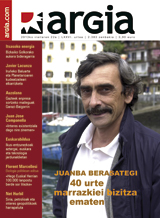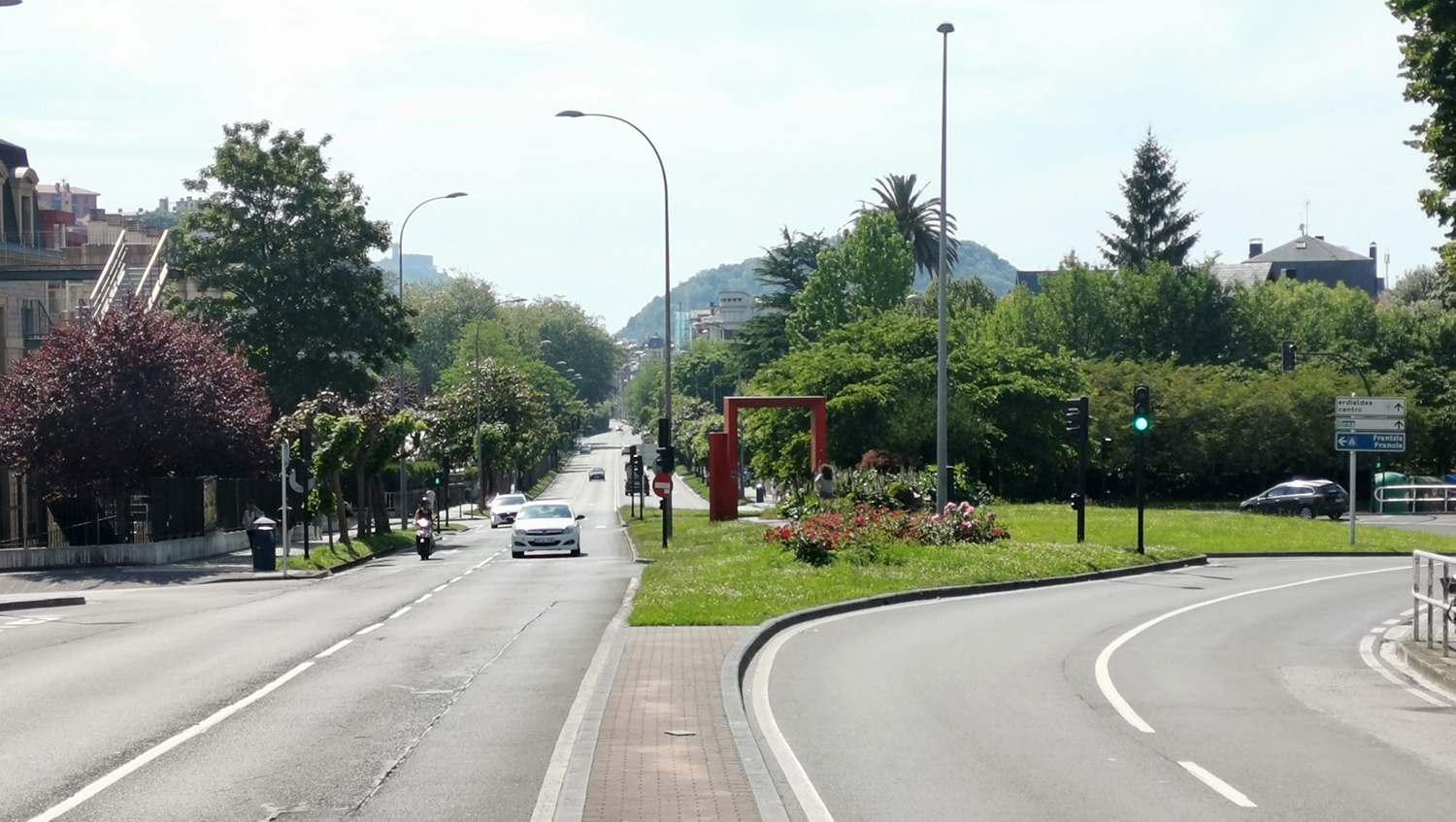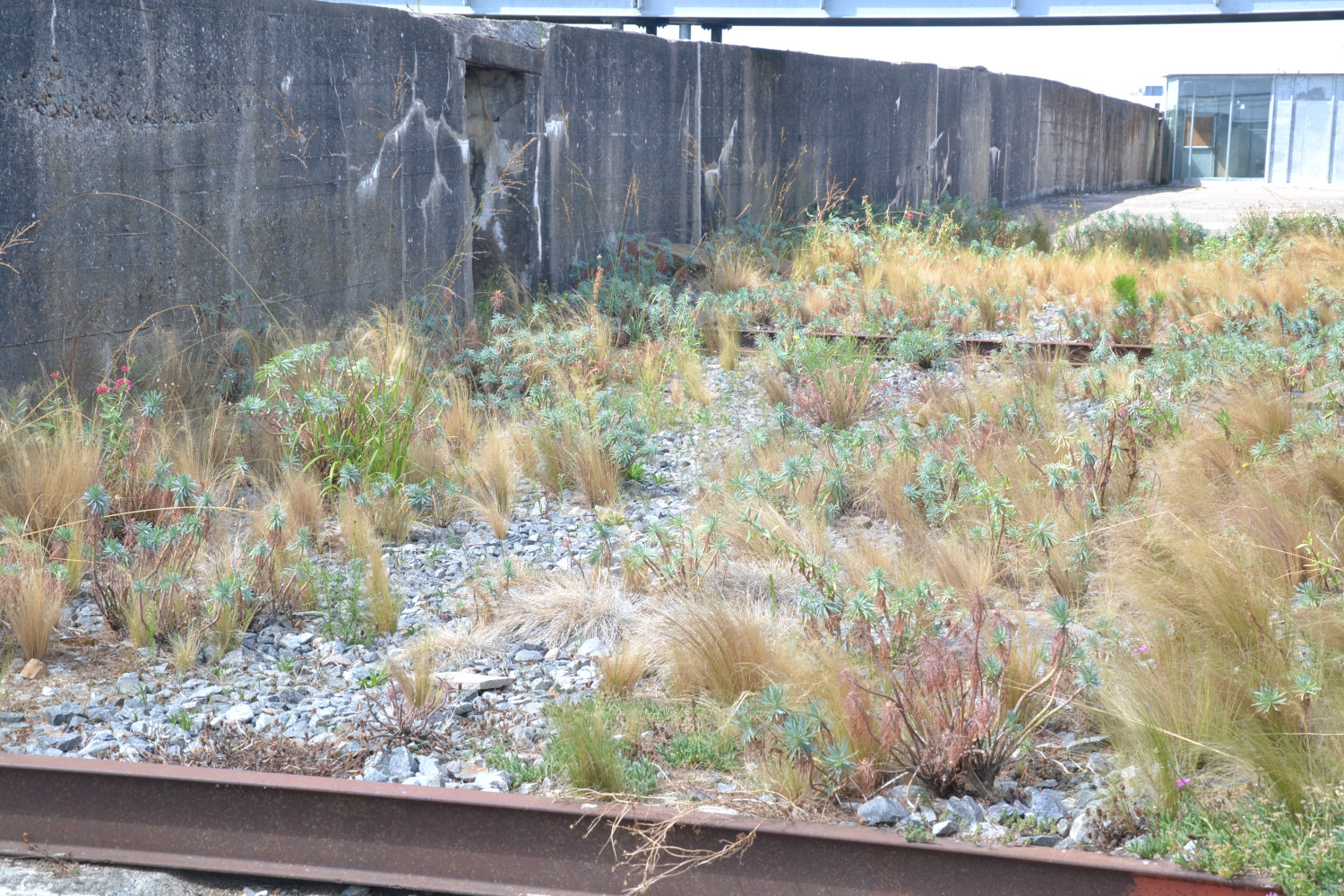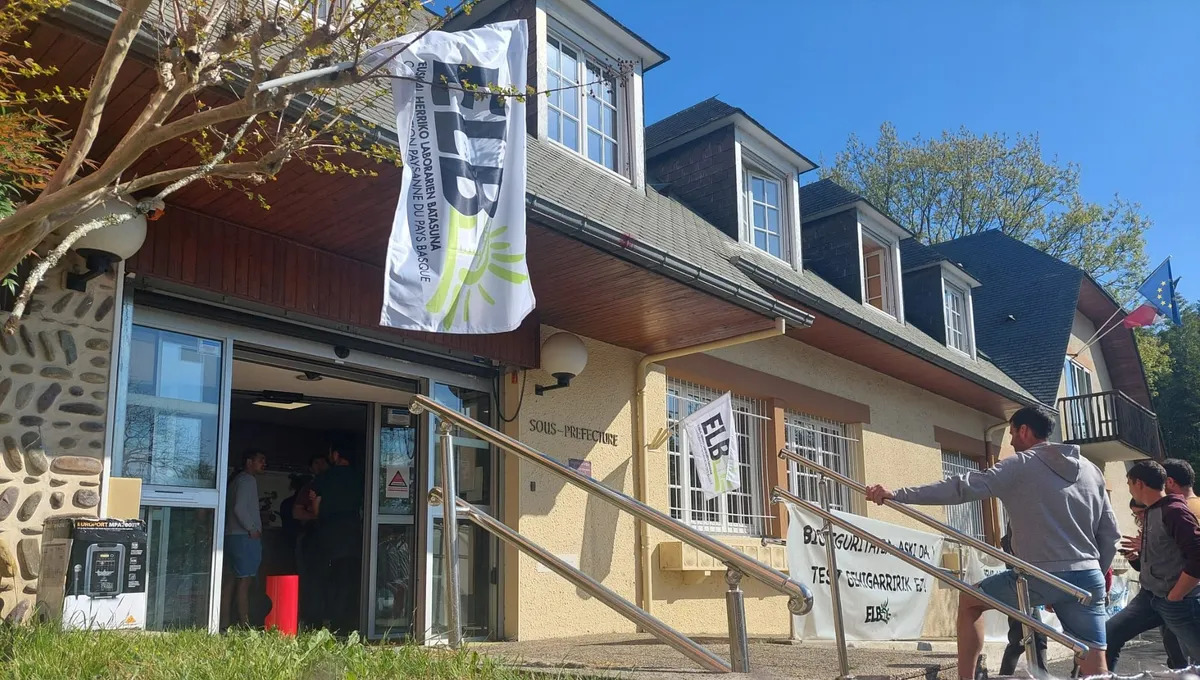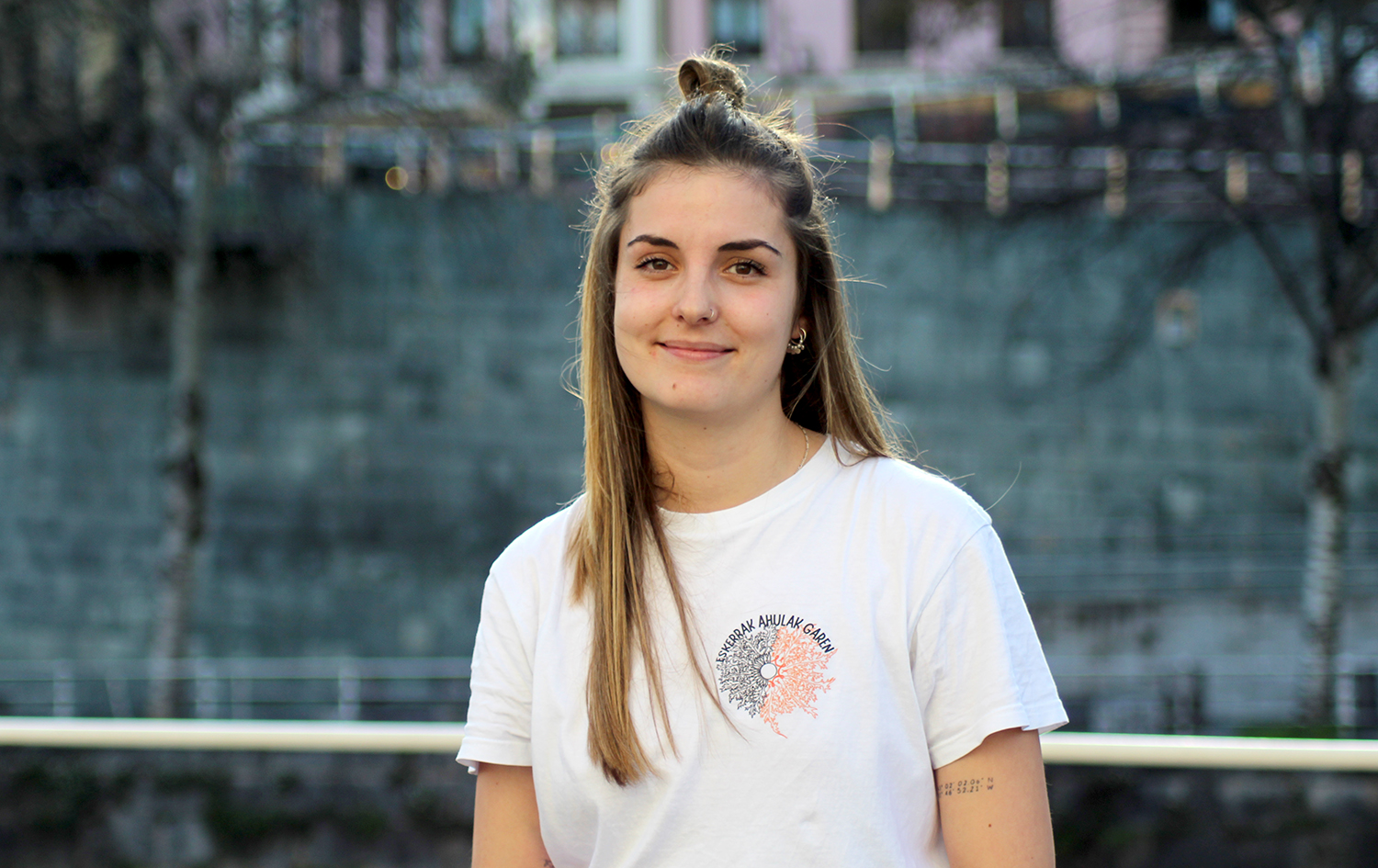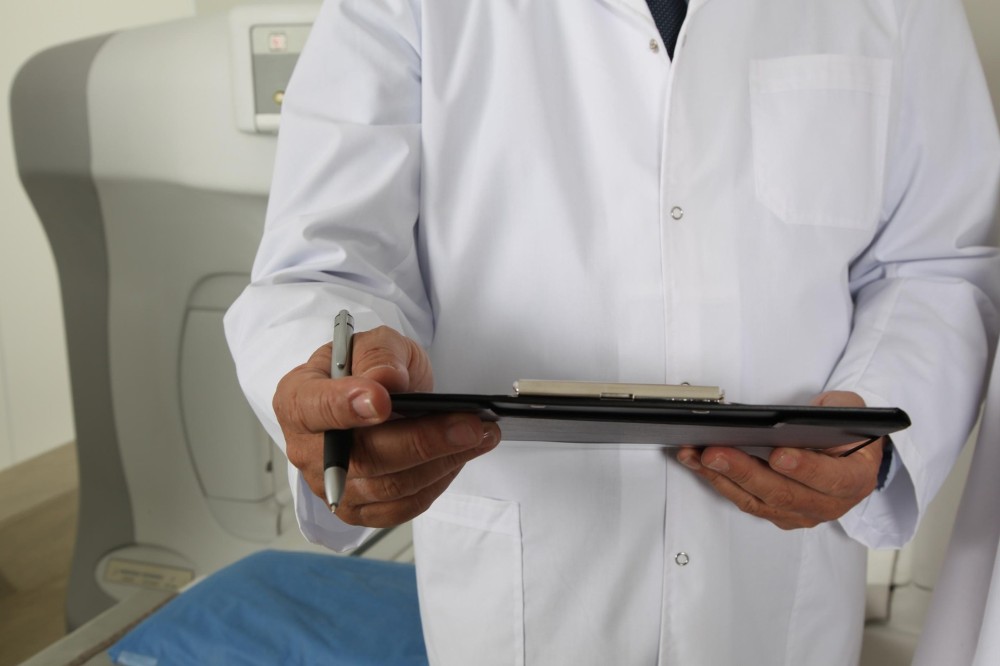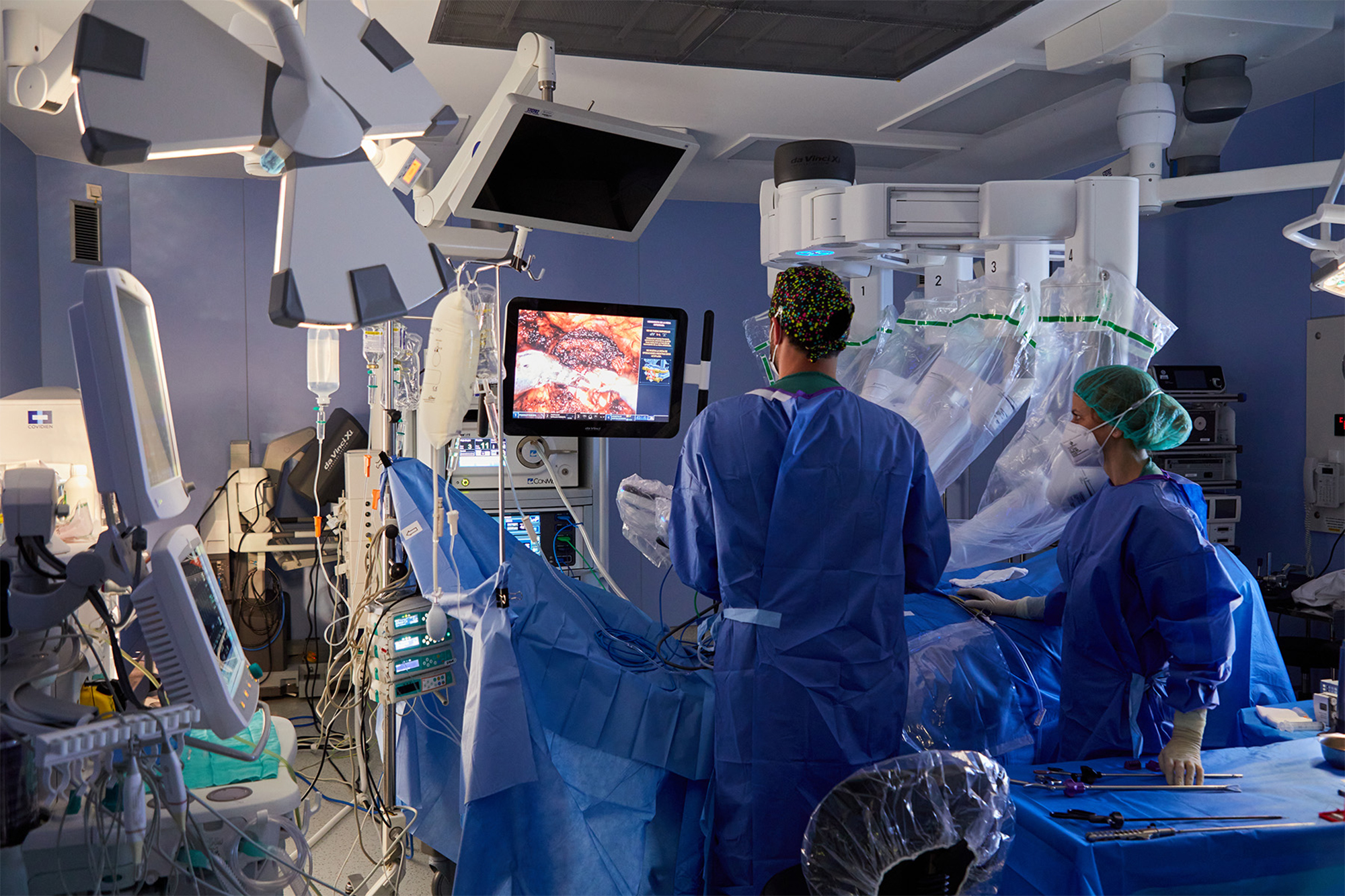"Seeing that you're not only helps a lot to accept Alzheimer's."
- Itziar Mikeleitz Irigarai lives in the Old District of Donostia-San Sebastián. The 71-year-old woman from Pamplona, married to a young woman in Donostia-San Sebastián and a merchant, was diagnosed two years ago with Alzheimer's at the Public University of Navarra. She welcomes us at home with one of her four children, Oihana Pagola Mikeleitz, but she proudly says she lives alone.
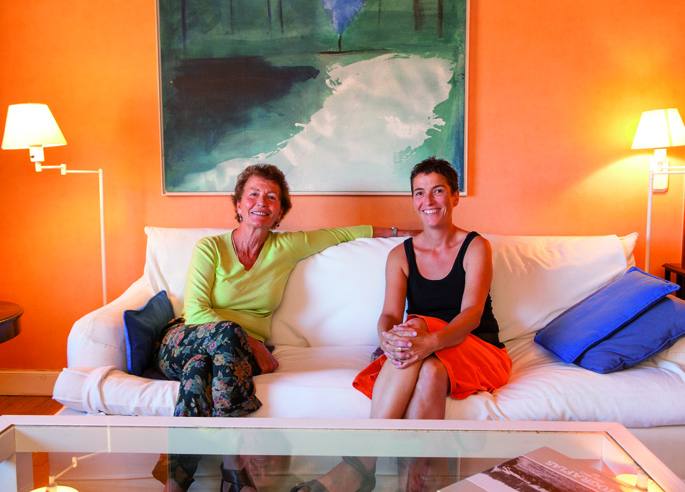
Day 21 is International Alzheimer's Day. This neurological disease affects more than 24 million people worldwide. It is the first motor of dementia and involves a progressive loss of memory capacities. There is much talk in the media about the disease, the symptoms and the medicines that are still unknown in many areas, but there is also much to say about those who suffer it in their bodies and in their minds. Mother and daughter have told her experience this way.
When did you know that Itziar had Alzheimer's disease?
Oihana Pagola: About four years ago, we had the first warning. In any place he was ruthless. So we realized that something didn't work well, and we went to see the neurologist. He was diagnosed with mild cognitive impairment, which would be the first phase. However, this phase can be a source of various diseases and in our case it evolved into Alzheimer's, as it happens most of the time. By April 2011, the doctor gave us the name suddenly after the medical examination performed every six months. The moment was terribly hard.
What came to mind when you found out it was Alzheimer's?
Itziar Mikeleitz: I scared a terrible scare. It was very strong. How much I cried that day… But at one point the head tells you that you have to go ahead, that others also have yours and that this has touched me.
PO It was a border for me. “From here we have to face the future,” I thought. You can imagine a lot of things. It's the head, and thinking that you're going to lose your head consciously is very hard. But gradually you are accepting and gradually you are moving forward. And fortunately, there are partnerships that provide great help. We were referred to by the AFAGI association, a team that helps both the family and the patient. For patients, they have classes and they give support to family members. It has helped us a lot. First of all, understanding and accepting what Alzheimer's is. Then, we took the step of starting to go to the maternal classes and you start to think about oysters, how we accept this, entering a place where the Alzheimer’s word becomes capital… in short, it is a way of assimilation, and the mother herself has received it very well, it is very comfortable. It helps you a lot to stimulate memory and it's beneficial to be with people who have the same disease. After all, seeing that you're not only helps a lot to know how many there are in the same situation.
What symptoms did you feel at first?
I.M. : I forget the names of my friends. People look at me on the street, how are you? And I, though I tell you, I don't remember who they are, but I know I know that I know them.
PO : Dismissals. Weaker and weaker. Disorientation in everyday places, forgetting the words circulating in daily life… Shaking hands can also be another symptom, and when it comes to saying things, the “filters” we receive socially are also being lost.
They say they remember the memories of childhood and forget about the ones nearby. Is that the case?
I.M. : In my case. I was in Baiona for two years studying French at a school and now I could draw the picture of the first day, I already have it in my head. I remember even the clothes I was wearing! Everyone else wore uniform, but I still didn't have it. Other times, I can't remember the word jam.
Has the disease developed a lot in these two years?
PO : No. Fortunately, it has remained fairly well since the beginning of the stage. You can see that it has come down a little, but little.
You live alone. How do you fix yourself?
PO : We put a tele-care service in our mother's house. He lives alone and still gets along. We therefore put it in order to control it, it is a service of the Basque Government. The mother is wearing a necklace and is connected to the phone. From time to time they call to ask him how he is and the mother passes the warning to the center by pressing the button on the collar, whatever it may be. It gives others peace of mind.
I.M. : I'm only very well, I'm very comfortable and I want to go on like this. It doesn't come to my house but a slider and a family. I prepare meals myself, even though many foods resemble each other.
Do you have any tricks to remember things?
I.M. Yes, you learn. I have a calendar. In it I point out every day the things I have done and I have to do, and I round the day I have spent. If not, I forget things! And so I know the day I live. I also have a trick for pills. I don't hold one in the morning, one in the afternoon and one in the evening. I don't forget, I take them all in the morning and it's over. Otherwise, when I was going to eat somewhere else I would surely forget to take it and I calm down.
PO : Things that are done weekly and on specific days also help you. On Mondays a woman comes to clean the house and learns that it's Monday. Class days also help you.
What is your day to day?
I.M. : When I get up, breakfast, I hesitate and order the house every day. Sometimes little grandchildren come along, and you know what the kids are like -- I have morning classes twice a week, and if not, I take a two-and-a-half hour walk with my sister. I don't go out in the evenings. After eating, on TV I see a “stupidity” and read a book or a magazine.
The association has helped you a lot…
PO "Yes, I've been helped a lot. At first, I understand and assume that this has touched us. It's been lucky to get to AFAGI. From the neurologist we do not receive too much help and information; where to go, what to do… It has been the network of friends that has led us to the association. A close friend passed the same thing with the father and he gave us the clue.
I.M. : I'm very happy to be in the partnership. We gather six people twice a week. There are several levels depending on the measure of disease development and the sad thing is that at the end of the course some member of the group raised the level and saw no more. I'm afraid to raise the level. I want to stay where I am, but well, it's also touched me once.
PO : There are five or six categories in the partnership. The mother is in the first level, but this is not like the ikastola, here nobody wants to raise the level, because it means being worse.
How do they scale patients?
PO : Make an appraisal before starting the course. At the hospital, the neuropsychologist performs a series of tests to find out at what level the groups are organized. By May and June other assessment tests are carried out to check whether it is maintained or raised at the level. Subsequently, a report is prepared for delivery to the family.
What are the exercises you work on?
PO : Memory stimulation exercises, attention and concentration, conceptualization of things, crafts… in AFAGI there is an expert who prepares the exercises. Depending on the level of the disease, the exercises are of one type or another.
How do you experience the disease? What fears and hopes do you have? How do you see the future?
I.M. Now I'm OK, but I know where I'm going. More than once I've thought: I'd like a pill to take it and make clac. I don't want to be a burden on others. I don't want to die yet, but maybe in three years' time.
PO : But when is that time? When you arrive at a time when you're not conscious, it's very difficult to fulfill what you've always wanted. In this Catholic society, death is not treated. You can write, you can explain what you want to do with your life, but this system says that you must live as long as possible, no matter that you're like a vegetable. Nothing can be done because it is illegal. We have talked a lot about that.
Andrea Velasko dietista eta nutrizionistak elikaduraren bidez menopausiak eragindako aldaketak kudeatzeko zenbait gako eman ditu.
The pandemic has revealed, in all its crudeness, the consequences of the neoliberal model of care for the elderly, children and the dependent population. Now is the time to consolidate the critical discourses and community alternatives that flourished during the lockdown.”... [+]
You may not know who Donald Berwick is, or why I mention him in the title of the article. The same is true, it is evident, for most of those who are participating in the current Health Pact. They don’t know what Berwick’s Triple Objective is, much less the Quadruple... [+]
Indartsua, irribarretsua eta oso langilea. Helburu pila bat ditu esku artean, eta ideia bat okurritzen zaionean buru-belarri aritzen da horretan. Horiek dira Ainhoa Jungitu (Urduña, Bizkaia, 1998) deskribatzen duten zenbait ezaugarri. 2023an esklerosi anizkoitza... [+]







